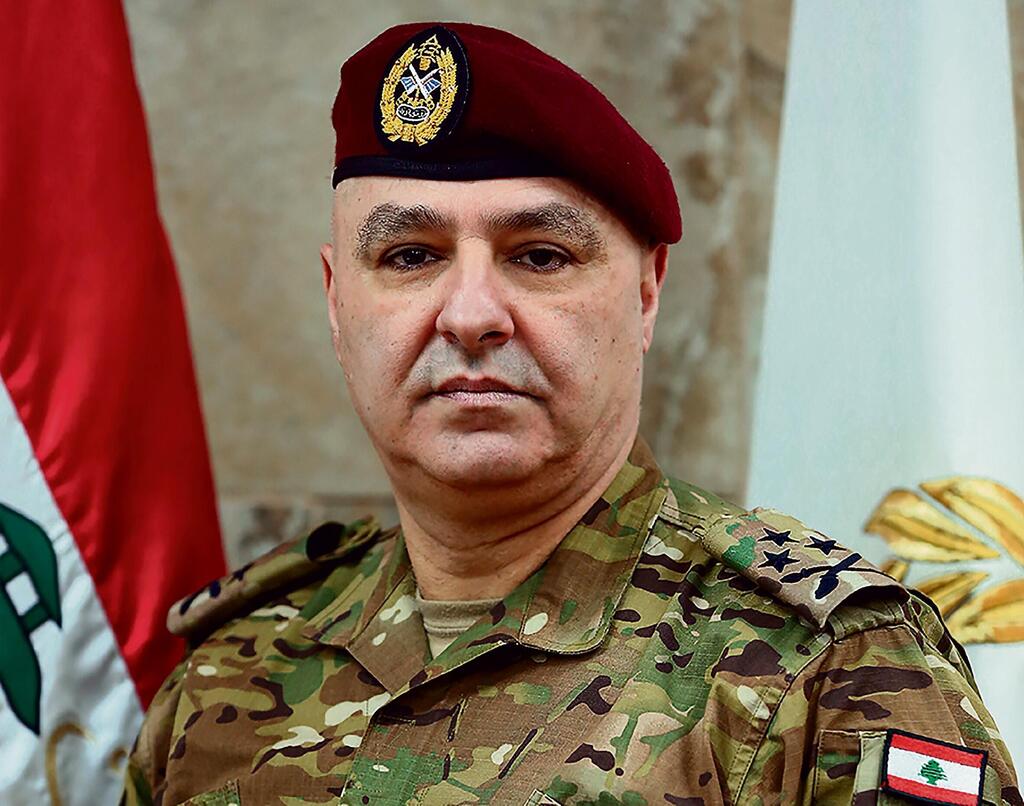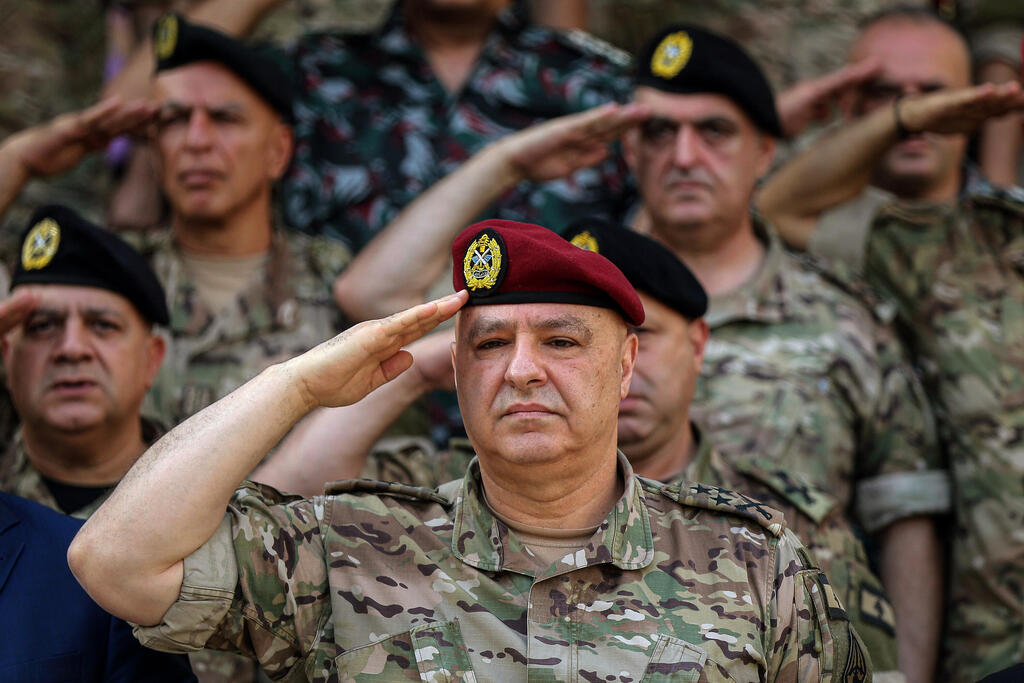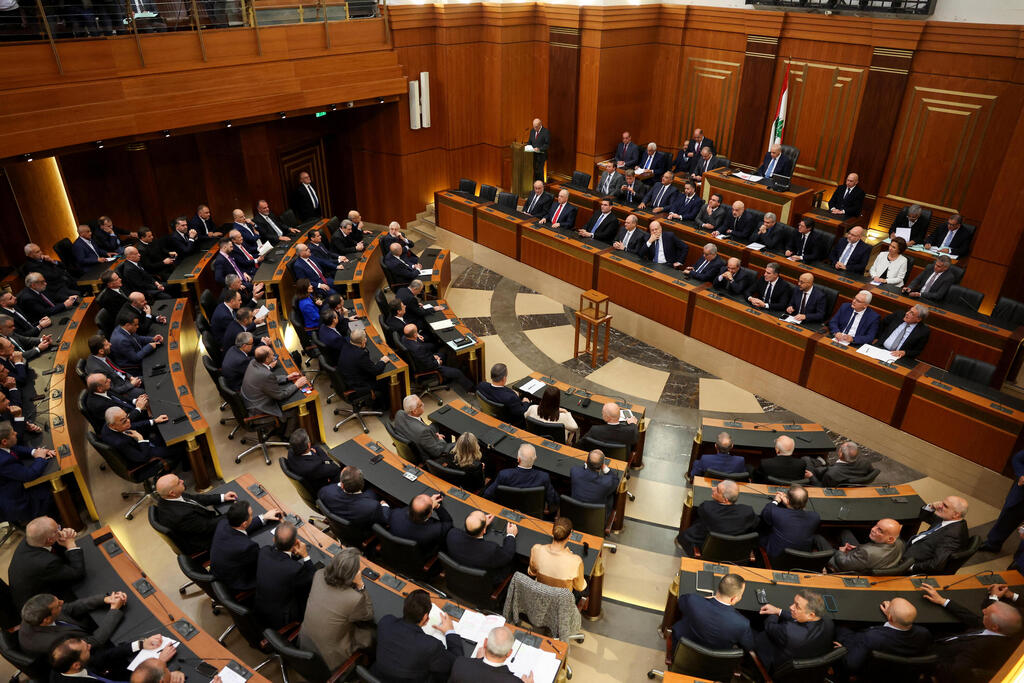Getting your Trinity Audio player ready...
Lebanon's parliament voted Thursday to elect the country's army commander, Joseph Aoun, as head of state, filling a more than two-year-long presidential vacuum.
The session was the legislature's 13th attempt to elect a successor to former President Michel Aoun — no relation to the army commander — whose term ended in October 2022.
The vote came weeks after a tenuous cease-fire agreement halted a 14-month conflict between Israel and the Lebanese terrorist group Hezbollah and at a time when Lebanon's leaders are seeking international assistance for reconstruction.
Aoun was widely seen as the preferred candidate of the United States and Saudi Arabia, whose assistance Lebanon will need to ensure that Israel withdraws its forces from southern Lebanon as stipulated in the agreement and to fund the post-war rebuilding.
Aoun secured the post with the second round of voting on the day. A first round of voting showed Aoun as the frontrunner, receiving 71 out of 128 votes but falling short of the two-thirds majority needed to win outright. Of the rest, 37 lawmakers cast blank ballots and 14 voted for "sovereignty and the constitution."
Parliament Speaker Nabih Berri adjourned the session for two hours, after which legislators returned for another round of voting.
In his victory speech, Aoun declared that a "new era in the nation's history" had begun. He vowed to rebuild areas in southern Lebanon and Beirut's southern suburbs, which he said were "destroyed by Israel," and emphasized Lebanon's sole authority in removing the IDF’s presence from the south.
He also promised to initiate dialogue with Syria to address sovereignty issues and the displaced persons crisis while pledging to uphold Lebanon's cease-fire agreement with Israel.
Israel conveyed a message to political circles in Beirut indicating it would "support" Aoun's candidacy for the presidency, signaling the potential for security cooperation.
Foreign Minister Gideon Sa’ar said at noon: "I congratulate Lebanon on the election of its new president after a prolonged political crisis. I hope this choice will contribute to strengthening stability, a better future for Lebanon and its residents, and fostering good neighborly relations."
Get the Ynetnews app on your smartphone: Google Play: https://bit.ly/4eJ37pE | Apple App Store: https://bit.ly/3ZL7iNv
Hezbollah — which has been weakened politically and militarily by the war with Israel — previously backed another candidate, Suleiman Frangieh, the leader of a small Christian party in northern Lebanon with close ties to former Syrian President Bashar Assad.
4 View gallery


Lebanese lawmakers cast their vote for the country's next president
(Photo: REUTERS/Mohamed Azakir)
However, on Wednesday, Frangieh announced he had withdrawn from the race and endorsed Aoun, clearing the way for the army chief. Also Wednesday, the Lebanese Forces, which leads the main parliamentary bloc opposed to Hezbollah, endorsed Aoun.
Lebanon's fractious sectarian power-sharing system is prone to deadlock, both for political and procedural reasons. The small, crisis-battered Mediterranean country has been through several extended presidential vacancies, with the longest lasting nearly 2 1/2 years between May 2014 and October 2016. It ended when former President Michel Aoun was elected.
The president's role in Lebanon is limited under the power-sharing system in which the president is always a Maronite Christian, the prime minister a Sunni Muslim and the speaker of parliament Shiite.
However, only the president has the power to appoint or remove a prime minister and cabinet. The caretaker government that has run Lebanon for the last two years has reduced powers because it was not appointed by a sitting president.
Joseph Aoun has become the fifth former army commander to ascend to Lebanon's presidency, despite the fact that the country's constitution prohibits high-ranking public servants, including army commanders, from assuming the presidency during their term or within two years of stepping down.
Although the ban has been waived before, it means that Aoun faces additional procedural hurdles.
Under normal circumstances, a presidential candidate in Lebanon can be elected by a two-thirds majority of the 128-member house in the first round of voting, or by a simple majority in a subsequent round.
Besides Aoun, other contenders included Jihad Azour, a former finance minister who is now the director of the Middle East and Central Asia Department at the International Monetary Fund; and Elias al-Baysari, the acting head of Lebanon's General Security agency. Al-Baisary announced Thursday that he was pulling out of the race.
The next government will face daunting challenges apart from implementing the cease-fire agreement that ended the Israel-Hezbollah war and seeking funds for reconstruction.
Lebanon is six years into an economic and financial crisis that decimated the country's currency and wiped out the savings of many Lebanese. The cash-strapped state electricity company provides only a few hours of power a day.
The country's leaders reached a preliminary agreement with the IMF for a bail-out package in 2022 but have made limited progress on reforms required to clinch the deal.




